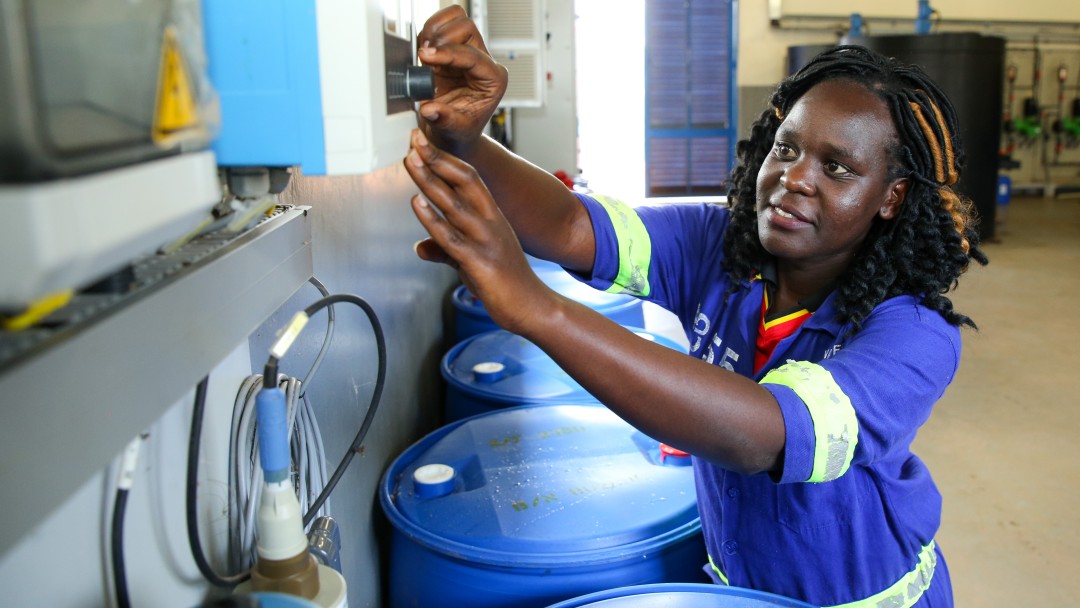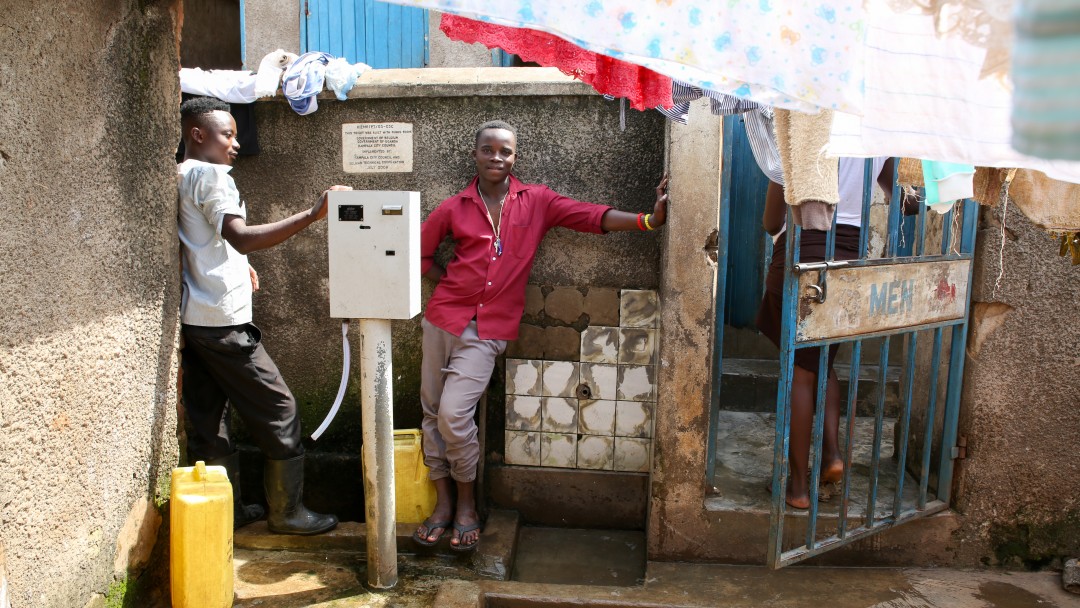News from 2020-03-20 / KfW Development Bank
We cannot afford to wait

"Business as usual is no longer an option" – this is the motto of the World Water Day, which has been celebrated annually on 22 March since 1993. It is an outcome of the UN World Conference on Environment and Development in Rio de Janeiro in 1992, where it was proclaimed by resolution of the UN General Assembly. Despite its high value as a natural and cultural asset, water is rarely in the public eye. The World Water Day is intended to draw public attention to the subject of water, this year's theme, 'Water and Climate Change', explores how water and climate change are inextricably linked.
More than 2 billion people live in countries with high "water stress" and almost 4 billion people live in areas where there is a serious water shortage for at least one month per year. By 2050, this figure is expected to rise to 5.7 billion. Every year, millions of people, especially children, die from lack of water or contaminated water. The Sustainable Development Goal (SDG) 6 sets out the goal of providing safe access to sanitation and clean water for all by 2030 and of using water sustainably.
KfW Entwicklungsbank is committed to the Sustainable Development Goals. On behalf of the German federal government, it has committed a total of EUR 1.14 billion for projects in the urban water management and waste management sector in 2019 – a strong second place behind the energy sector (EUR 1.87 billion). Almost one third of the funds will go to Africa, including Uganda.
In the city of Gulu in the north of the country with 212,000 inhabitants, an integrated approach is being pursued – co-financed by the World Bank – in the areas of water and sanitation, waste management, drainage and land use planning. A total of EUR 41 million FC funds are available for various measures. In the north of Uganda access to safe drinking water is below 30% in many towns.

For decades the region around Gulu was the scene of armed conflict between the Ugandan military and the rebel group Lord Resistance Army (LRA). Numerous, internally displaced persons and refugees have settled in informal settlements in the urban area. This, together with strong population growth and a lack of investment in infrastructure, has led to very low access rates for water supply, even by national standards. Particularly in informal settlement areas, flooding has repeatedly occurred during rainfall with all the negative consequences for the health of the inhabitants. There existed a rudimentary disposal system before the programme started.
Much has happened in the past three years: the water treatment plant and the Oyitino reservoir have been rehabilitated, public and school toilets and a new faecal sludge treatment plant have been built, the sewerage network has been expanded, and the remaining snags are being finalized.
The Nile water in-take, water treatment plant and pipeline are ready to go out to tender whilst improvement of the urban drainage and the securing of the waste disposal site are about to be implemented. Each physical mesure is accompagnied by sensitization campaigns aimed at school children and the general public, management and legal measures to ensure the sustainability of the investment. This project has not only improved the living conditions of the population of Gulu but has also promoted the efficient use of water resources.

Share page
To share the content of this page with your network, click on one of the icons below.
Note on data protection: When you share content, your personal data is transferred to the selected network.
Data protection
Alternatively, you can also copy the short link: https://www.kfw-entwicklungsbank.de/s/enzBWrMC.CMTA
Copy link Link copied